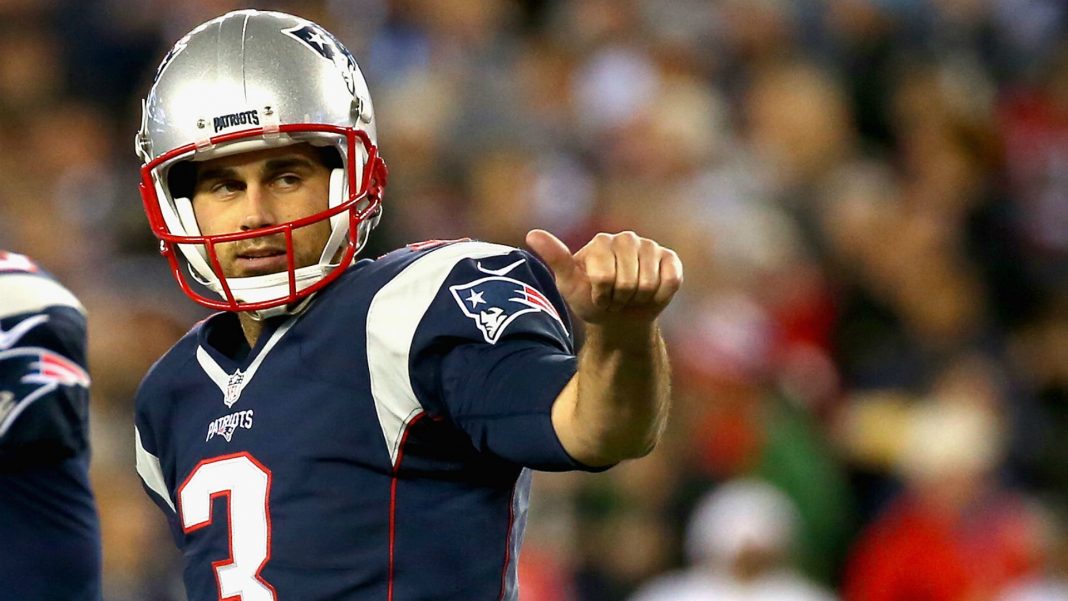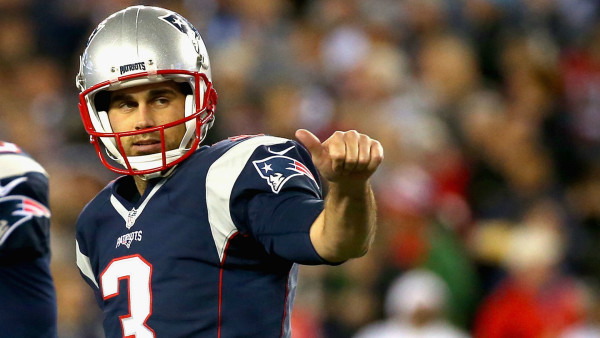

“You’re welcome,” replied McManus in his usual cool, calm, and collected manner.
“He was wrong. I obviously had one point,” said McManus. He’s right. That one PAT put him on the board.
Being verbal punching bags for angry fantasy owners comes with the paycheck in the NFL. Players have grown accustomed to being treated as pawns in the great chess matches of fantasy fanatics over the years; however, with the recent proliferation of one-day fantasy sports leagues on websites such as Draft Kings and Fan Duel, things have gotten a bit out of control.
Get this: NFL players and personnel are, of course, prohibited from betting on games. Fantasy leagues and one-day games are 100 percent legal under the league’s rules.
But there’s a catch—you cannot accept more than $250 in prize money for one league. On top of that, enforcement of that amount is based completely on the honor system. If Adrian Peterson plays himself in Draft Kings and wins $251, he’s expected to turn himself in.
I don’t consider one-day leagues gambling. They’re games of skill, after all, but there is still a bit of chance and luck mixed in there as there is with anything in life. Just enough to give team personnel an unfair advantage in this industry.
For example, if I’m a trainer for the Arizona Cardinals, I would have known that John Brown wouldn’t make it out on the field Week 8 against the Cleveland Browns despite being listed at about 90 percent probable. While a player may not care enough about $250 to take advantage of this knowledge, a trainer or ball boy wouldn’t turn down the extra spending money.
Then again, that is assuming that the league is actually enforcing the $250 rule. Download Tor browsing, use a fake name, and the NFL couldn’t find out even if they wanted to.
Forget the players, though. The fans are the real problem.
“I see people get blown up about it all the time,” said McManus. “Even our fans go into the game and say ‘Oh, I need so and so.’ I don’t think they realize their fantasy is our reality.”
Social media doesn’t help either. Thanks to Twitter, disgruntled owners now have a medium to blow steam directly at the players.
“They talk noise and try to figure out who’s player and who’s starting,” said Broncos wide receiver Andre Caldwell. “They hit us up all the time and talk noise when you don’t play well.”
If you’re ever the player in this situation, just remember, using logic never works.
“Some people have been like, ‘You cost me such and such money, you cost me $1.2 million!’,” said Broncos tight end Daniel Owens. “I’m like, ‘If you would have won $1.2 million, would you have given me any amount of that money?’ If you’re saying I didn’t earn it for you, then if you had won, I did earn it for you. So I need a cut.”
Fat chance.
Some players like Pierre Garcon aren’t taking no for an answer. Garcon filed a class action lawsuit against Fan Duel earlier in the season for using his name and image without permission. He has encouraged other players to join in.
“I would,” said Broncos defensive end Malik Jackson when asked about joining in with Garcon. “I mean, that’s like me using your name and your likeness and not giving you anything. But that’s the league. They feel they pay us enough so they can do whatever they want.”
Unfortunately for Jackson, defensive players probably won’t be getting anything out of the lawsuit in the end. Players like Garcon, however, certainly have a point.
No matter what New York says, fantasy sports are here to say—and they’re altering reality for the real players.

